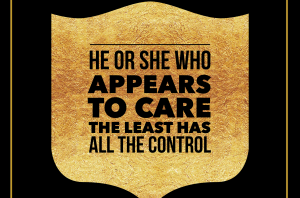Robert Greene is best known as an American author. He has released 5 international bestsellers. Those books are about strategy, power and seduction. Robert Greene net worth currently reaches $7 million. One of his best-seller books is “The 50th Laws”
But who is Robert Greene Really?
One would be forgiven for thinking that Robert Greene, author of The 48 Laws of Power, the international bestseller on how to shin up the greasy pole, must be an arrogant megalomaniac living behind security gates in one of Los Angeles’s smartest neighbourhoods. So I am surprised to be greeted by an affable bespectacled man, wearing slightly crumpled clothes, at the door of his Spanish-style bungalow off a busy street in Los Feliz, a bohemian area on LA’s west side.
“Everyone assumes I practise all of my own laws but I don’t. I think anybody who did would be a horrible ugly person to be around,” laughs Greene, who has just written a new book called Mastery, a sort of self-help book on how to fulfil your own intrinsic potential. Key is identifying one’s life’s passion, then undertaking an apprenticeship and finding a mentor to guide you. Greene uses historical ‘masters’ such as Charles Darwin and Mozart as examples, as well as modern ones like the architect Santiago Calatrava.
Although inspiring overall, some aspects are discouraging. The level of dedication Greene advocates – 10,000 hours of apprenticeship for example – is impossible for most people. Greene nods: “There are so many distractions now – I’m really concerned that people in the future won’t know how to build a bridge or create a political movement. There’s a sense of entitlement, an attitude of ‘If my phone isn’t fast enough, screw Apple’.”
For every master, I say, there must be thousands more who aim high and fail. “I don’t mean to intimidate people with my examples,” says Greene, sipping a cup of tea. “There are levels of mastery. Plumbers can be masters, the guy who did my patio is a master, some people are masters at raising really great children.”
His first book is likely to remain his most influential. The 48 Laws of Power has sold 1.2 million copies in the United States alone. And it’s not only business students who have become devotees. The “bible for atheists”, as Dov Charney, the founder and CEO of American Apparel, has described it, has been embraced by rappers, movie moguls, captains of industry and criminals alike. It remains one of the most requested books in prison libraries.
Not that its adherents all admit to using its sometimes dubious principles – such as Law 15: Crush your enemy totally. Those who do, swear by it. Fidel Castro has reportedly read it, the famed Hollywood producer Brian Grazer has personally sought out Greene’s advice, as has Charney, who says of Greene, “I call him Jesus”. Charmingly, Charney also furnishes every employee he fires with their own copy.
Power was followed by The Art of Seduction, a manual on how to make the masses adore you – and snare a mate. His next, The 33 Strategies of War, taught readers to apply battleground thinking to everyday life, from “Create a threatening presence” to “Destroy from within”.
Sitting in his comfortable living room stuffed full of books and record albums, Greene is quite intense and jittery, watching everything I do like a hawk: “Wow, your handwriting is very interesting,” he says, as I make some notes. I ask him if he’s analysing me. “Yes, but I’ll probably analyse you more after you’ve gone. I’m quite intuitive at smelling out the bad, the snakes. But I don’t think you’re a snake.”
Phew – I wouldn’t like to get on the wrong side of a man whose other unnerving laws include “Keep others in suspended terror” (Law 17) and “Pose as a friend, work as a spy” (Law 14). No wonder The New Yorker described Greene’s original book as a manual on “how to be a creep”. I ask him if he minds such comments: “Not really,” he chuckles. “My favourite one was a magazine headline that called it ‘Chicken soup for the soulless’. It’s not a manual on how to be as creepy as possible, it’s a book about what’s going on in the real world.”
But does he ever worry that he is making the world a worse place? Greene looks affronted. “That’s a cat’s paw,” he says, referring to my question. “It would make me feel terrible if I thought that. Evil or manipulative people don’t need a book, they just do it anyway. There are some borderline cases where maybe somebody got inspired [to do something bad]. But the emails and letters I get are so effusive, most people tell me ‘You saved my life, thank you’. At the moment I’m helping a university professor who got fired for very ugly political reasons. Also the wife of a very well-known NBA player contacted me recently – she feels she’s lost the limelight and wanted my help thinking about her own career.”
When pressed, it appears that Greene takes most of his laws with a healthy pinch of salt. “When I say ‘Crush your enemy’, I don’t literally mean it.”
So what does he mean? “I’m talking about the way large companies deal with each other, for example in technology it’s a dog-eat-dog environment. These laws are not for Joe Schmo who’s got a colleague he doesn’t like.”
The younger son of Jewish parents, Greene grew up in West Los Angeles – his father sold cleaning supplies and Greene went to local state schools and then took a degree in classical studies. “I had a thing for words and for Ancient Greece, maybe almost bordering on mental illness. I always knew I wanted to be a writer but then the real world hit me in the face after I graduated college, I had to make a living.”
Now 53, he estimates he had 80 different jobs – from construction worker to screenwriter to hotel receptionist – before he was able to devote himself to writing. He used to experience The Laws of Power from the receiving end and admits to becoming resentful of those in power. “I would ‘outshine the master’ [Law 1: Never outshine the master] and suffer grievously for it. Or I would work for a director and write whole bits of dialogue but my name would never be there.” (Law 7: Get others to do the work for you, but always take the credit.)
As a Hollywood bystander, he saw manipulation everywhere he looked. “One director wrote a screenplay and wanted to direct it as well as produce it himself but the finance people wouldn’t let him, they didn’t think he was up to the job. So he went out and hired a director who he knew was going to fail and he had to come in and rescue the project. Incidents like that opened my eyes.”
He has no psychological training. “You don’t need to study psychology, studying something sometimes make you less able. I’m just very good at going deep into someone.”
The turning point came in Venice in 1995 when he met a book packager called Joost Elffers who asked Greene if he had any ideas for books. “I came up with this idea of a book on power and he got very excited.”
When the rap world embraced his book, Greene’s star rapidly rose. Music industry heavyweights started adopting its principles and passed it on to the artists. As Kanye West later rapped: “The only book I ever read I could have wrote: 48 Laws of Power.” 50 Cent, the hardcore rapper who began drug dealing at the age of 12, was so impressed that he asked to meet Greene. They ended up working collaboratively on the 50th Law, an urban take on The 48 Laws of Power. “I like hanging out with Fiddy,” says Greene, using 50’s nickname. “We have a lot in common.” Apart from dealing drugs? “No, I dealt drugs for a while,” says Greene. “Just kidding. I consumed drugs, I didn’t deal them. Fiddy is a disciplined, hardworking solid person who even my mother liked. Busta [Rhymes, another rapper fan of Greene’s who has used the laws to deal with difficult movie directors] is a little scarier than Fiddy.”
Greene has admitted to practising techniques from The Art of Seduction on his girlfriend Anna Biller, a film-maker, who drifts in and out of the room throughout the interview. A pretty dark-haired woman, she is dressed eccentrically in a black dress, red leggings, and Mary Jane shoes with her hair in two girlish plaits.
They have been together for 16 years but he had his work cut out trying to persuade her to go out with him. First, he says, he managed to get himself invited to a party at her house. Once there, “I looked at the albums on her shelf and invited her to an opera that I knew would impress her. But I still didn’t manage to seal the deal.” So he pressured her into going to his 37th birthday party. “I had all these women friends who were stunningly beautiful and I invited them too so that she would think I was desired by them.”
As Biller passes through, I ask her how Greene inveigled her into attending his birthday. “That was dark,” says Biller. “I’d gotten bored talking to him and I’d forgotten to call him back.” “I bored you?” asks Greene. “You just didn’t seem that interested, you were playing it too cool. Then I ran into him a couple of weeks later.” Was that accidental, I ask Greene? “Probably not,” he admits sheepishly.
“And he was angry with me. He made me feel I’d behaved terribly and that I had bad social skills and that I had to go to his birthday to prove I wasn’t just a total nasty loser. So I went and there were all these beautiful, smart girls. And Robert! And I actually did have the feeling that he had designed for me to have: ‘Wow, he likes me?’” How long did it take her to realise it was a set-up? “I never realised,” she laughs. “I was just very dense. I still don’t quite believe it.” And are such manipulations still evident in their everyday life? “Oh God, constantly,” says Biller, who is like a tap that cannot be turned off. “Sometimes I put my foot down because he’s so manipulative.”
“Oh come on,” says Greene, sounding a bit fed up now. “Are you really serious?” “You’re pretty manipulative,” says Biller. “But that’s not a bad thing. I used to get bored with men very quickly. The fact that I’m still here is because he’s so clever at keeping a step ahead of me allthe time.”
“You’re confusing me with Brutus,” says Greene, referring to their cat. Biller eventually relents: “The thing about Robert is that underneath it all he’s such a nice guy.” “Underneath the a–hole veneer he’s a nice guy,” quips Greene. “OK, that was a good closing: ‘In victory know when to stop’,” he adds, citing a version of Law 47.
What makes Greene good company is this sense of humour. When I ask if he can name anyone who has solicited his help over the years, he says: “I can’t name names. Although there was this guy called David Cameron…” He adds that if Cameron really did ask his advice he would have a few tips. “He reminds me of Romney, pretending to be one of the people: a triangulating compassionate deceptive slippery sort; you can’t seize them. Isn’t Cameron the poshest of the posh? Franklin Roosevelt came from a very wealthy background too but he genuinely felt empathy for the working class. That works. But when you fake it, it doesn’t. That [piece of advice] comes from The Art of Seduction. I think I would give David Cameron The Art of Seduction.”
As for Barack Obama, Greene thinks he would benefit from reading Mastery, which emphasises the importance of a rigorous apprenticeship in whatever trade you’ve chosen. “You’re not born a brilliant political figure. I think Obama is a brilliant campaigner and has mastered social media and grassroots organisation. What he’s weak at is the hard nuts and bolts of political manoeuvring, dealing with Congress and the ugly side of politics.”
Compared with The 48 Laws of Power, his latest book isn’t nearly so… “Evil?” interjects Greene with a chuckle. Well, yes. It contains a few dubious recommendations – such as figuratively “knifing” your mentor, once you’ve extracted everything useful from them. But the overall tone of the book is far less immoral. Has he lost his bite? “I suppose it’s possible that I’m softening but I don’t like to think that. In 48 Laws I was channelling some anger. It was a catharsis. Maybe I’ve just moved on.”
Click here to become a Slaylebrity Curator
Source Telegraph





